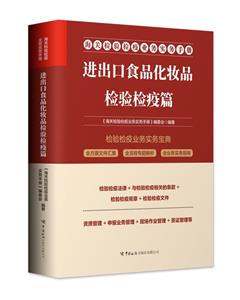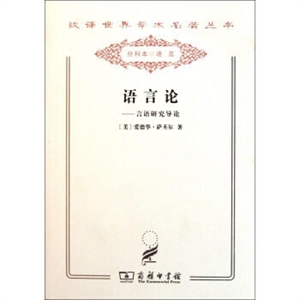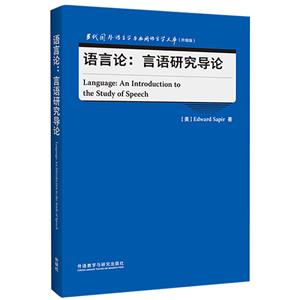
作者:陈光明
页数:320
出版社:知识产权出版社
出版日期:2020
ISBN:9787513071154
电子书格式:pdf/epub/txt
内容简介
萨丕尔·沃尔夫假说是一个关于语言、文化和思维之间关系的假说。该假说中所蕴含的理念是对启蒙主义时期“语言—思维”观(思维与语言是两个不同过程,且前者接近制约后者)的反拔。本书采用新沃尔夫主义者的研究范式,以英汉母语者为实验对象,在时间领域对该假说进行了检验。实验结果表明:两组被试的时间认知既有共性,也存在显著差异;已有时间认知模型对英汉母语者时间认知图式的描述存在偏差;人类时间认知的形成基于一个复杂的经验基础网络,作为这个网络的组成部分,语言因素确会影响人脑中时间表征的形成。本书可作为认知语言学实证研究领域的参考用书。
作者简介
陈光明,女,博士研究生,讲师。北京语言大学英语语言文学博士毕业,现任职北京语言大学外国语学部英语学院,主要从事语言与文化对比研究。主持并完成多个北京语言大学院、校级项目,主持教育部青年项目,在《语言教学与研究》等杂志发表文章。
目录
Contents
Chapter 1.Introduction: what is SWH ……………………………………………………………….1
1.1 A brief history of SWH………………………………………………………………..3
1.2 Different terms used to address SWH ………………………………………….13
1.3 Different interpretations of SWH ………………………………………………..19
1.4 Misusage …………………………………………………………………………………23
1.5 Key terms in SWH ……………………………………………………………………26
1.6 Summary: What is SWH ……………………………………………………………32
Chapter 2 Literature review of empirical studies on SWH ………………………………33
2.1 Literature review on empirical studies in the neo-Whorfian period
(articles presented in English) …………………………………………………….38
2.2 Literature review on empirical studies in the neo-Whorfian period
(articles presented in Chinese) ……………………………………………………98
2.3 Summary ……………………………………………………………………………….101
Chapter 3 Research methodology: the neo-Whorfian research paradigm …….103
3.1 Picking a domain: the domain of time ………………………………………104
3.2 Linguistic coding of time in Chinese and English ……………………….109
3.3 Non-linguistic coding of time in the cognition of native speakers of
Chinese and English: temporal representations in cognition …………120
3.4 Summary ………………………………………………………………………………136
Chapter 4 Do native Chinese and English speakers think about time
differently because they talk about time differently ……………………..137
4.1 Experiment 1: time in spontaneous gestures ……………………………….139
4.2 Experiment 2: time in deliberate gestures …………………………………..171
4.3 Experiment 3: the STARC effect ……………………………………………….215
Chapter 5 Conclusion ……………………………………………………………………………………238
5.1 Answers to the research questions ……………………………………………..238
5.2 Weaknesses of the present research …………………………………………..243
References ………………………………………………………………………………………………………..245
Appendixes………………………………………………………………………………………………………269
Appendix 1: spontaneous gestures of native Chinese speakers
(presented in interview order) …………………………………………………………..270
Appendix 2: spontaneous gestures of native English speakers
(presented in interview order) …………………………………………………………..285
Appendix 3: questions for native Chinese speakers in Experiment 2 ……..307
Appendix 4: questions for native English speakers in Experiment 2 ………308
Chapter 1.Introduction: what is SWH ……………………………………………………………….1
1.1 A brief history of SWH………………………………………………………………..3
1.2 Different terms used to address SWH ………………………………………….13
1.3 Different interpretations of SWH ………………………………………………..19
1.4 Misusage …………………………………………………………………………………23
1.5 Key terms in SWH ……………………………………………………………………26
1.6 Summary: What is SWH ……………………………………………………………32
Chapter 2 Literature review of empirical studies on SWH ………………………………33
2.1 Literature review on empirical studies in the neo-Whorfian period
(articles presented in English) …………………………………………………….38
2.2 Literature review on empirical studies in the neo-Whorfian period
(articles presented in Chinese) ……………………………………………………98
2.3 Summary ……………………………………………………………………………….101
Chapter 3 Research methodology: the neo-Whorfian research paradigm …….103
3.1 Picking a domain: the domain of time ………………………………………104
3.2 Linguistic coding of time in Chinese and English ……………………….109
3.3 Non-linguistic coding of time in the cognition of native speakers of
Chinese and English: temporal representations in cognition …………120
3.4 Summary ………………………………………………………………………………136
Chapter 4 Do native Chinese and English speakers think about time
differently because they talk about time differently ……………………..137
4.1 Experiment 1: time in spontaneous gestures ……………………………….139
4.2 Experiment 2: time in deliberate gestures …………………………………..171
4.3 Experiment 3: the STARC effect ……………………………………………….215
Chapter 5 Conclusion ……………………………………………………………………………………238
5.1 Answers to the research questions ……………………………………………..238
5.2 Weaknesses of the present research …………………………………………..243
References ………………………………………………………………………………………………………..245
Appendixes………………………………………………………………………………………………………269
Appendix 1: spontaneous gestures of native Chinese speakers
(presented in interview order) …………………………………………………………..270
Appendix 2: spontaneous gestures of native English speakers
(presented in interview order) …………………………………………………………..285
Appendix 3: questions for native Chinese speakers in Experiment 2 ……..307
Appendix 4: questions for native English speakers in Experiment 2 ………308















